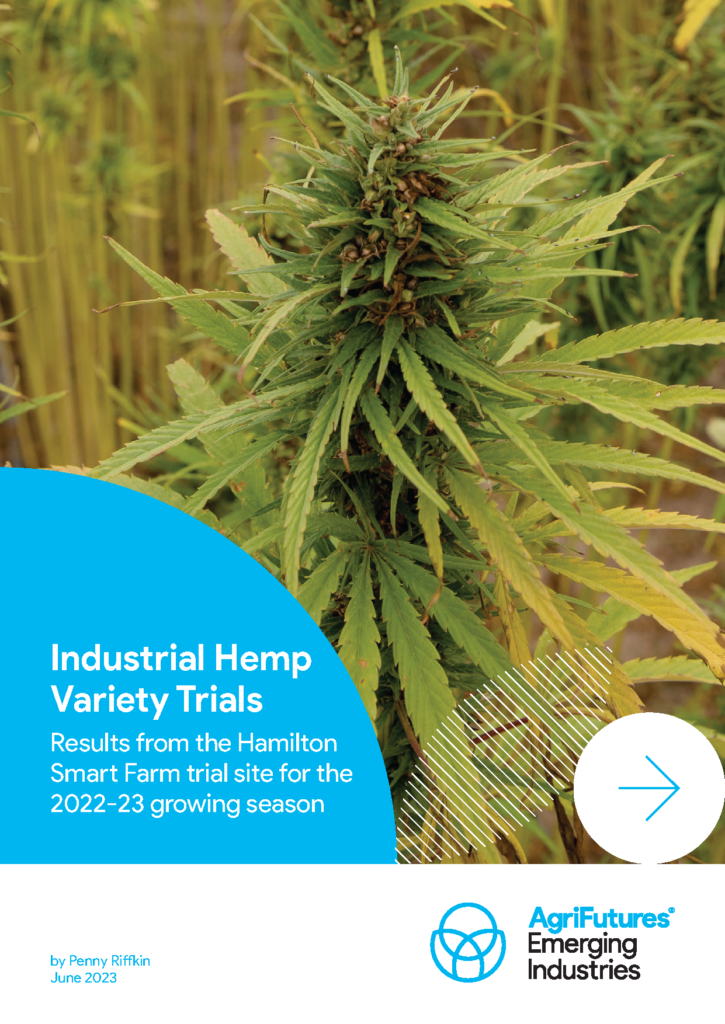AgriFutures Australia’s Emerging Industries Program has determined that industrial hemp (Cannabis sativa L.), i.e. low tetrahydrocannabinol hemp, is an industry with high growth potential due to the crop’s diverse uses and applications in addition to its sustainability credentials. Against this backdrop, the AgriFutures Emerging Industries Program has invested in a series of variety trials to understand the crop’s performance across Australia.
A nationally coordinated Industrial Hemp Variety Trials (IHVT) program covering the current and future major production environments was identified as a key priority in the Australian Industrial Hemp Strategic RD&E Plan (2022-2027).
The three-year Industrial Hemp Variety Trials program is into its second year and is providing valuable information to Australian hemp growers by assessing different hemp seed and dual-purpose varieties suitable for different regions across the country. Trial sites have been established in nine locations, including in the Northern Territory, South Australia (2), Tasmania, Victoria, Western Australia (2), New South Wales and Queensland.
The 2022-23 trial at Hamilton, Victoria included two times of sowing (TOS). TOS 1 was on 9 November and TOS 2 was on 20 December. The grain yield of the 10 varieties trialled ranged from 1.17 t/ha to 2.66 t/ha, with Fedora 17 the most consistent-yielding variety over both sowing times, yielding an average of 2.5 t/ha. There were four varieties sown in both the first and second year of the IHVT program at Hamilton, and yields for these varieties were consistent across both years. Averaged across the two years, the yields were: CFX-2 – 1.57 t/ha; CRS-1 – 1.82t/ha; Henola – 1.97 t/ha; and Katani – 1.45 t/ha.
Grain quality (protein and oil content) was consistent across varieties in 2022-23. Biomass yields were up to 10 t/ha. Varieties sown in TOS 2 produced about 30% more biomass than those sown in TOS 1 with the exception of Ruby, which produced similar amounts of biomass at both sowing times.
The results presented in this report under the trial conditions are indicative of the region, however another year’s data is required to provide a more robust dataset.





